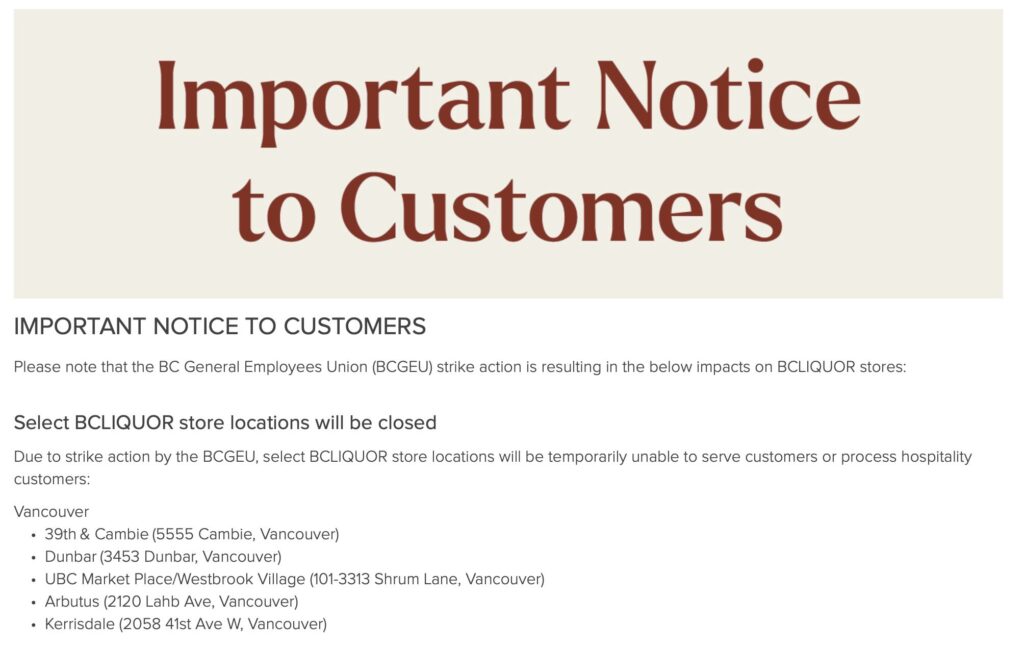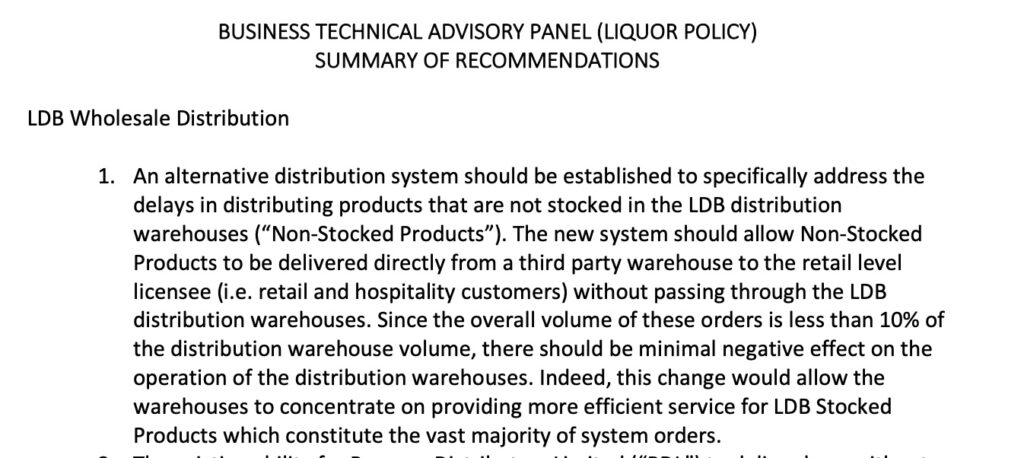
British Columbia’s government controlled liquor distribution system (BCLDB) is now in crisis mode due to a strike by the BCGEU which has now shut down all of the government liquor distribution warehouses and a significant number of high volume government retail stores. The complete shut down of the system will have serious knock-on effects for restaurants, bars, hotels and private retailers, all of whom depend upon the BCLDB for their import liquor supply and associated revenue. The crisis is made worse due to hang-over economic effects from the pandemic, reduced overall consumption, and from the province’s ban on the importation of U.S. alcohol.
A few of the immediate consequences are as follows:
- Restaurants, bars and hotels will soon run out of import inventory on some of their most popular liquor products as it will be impossible to replenish inventory.
- Private retailers will also face challenges if the strike drags on as they too will be unable to replenish inventory.
- The business of import agents (mostly small local companies) is effectively suspended since they have no way of getting their product out of the warehouses where they are stored.
- Special events, including charitable ones, will have trouble sourcing liquor supplies and some may have to cancel.
- Saturday’s Bordeaux release event at government BCLS stores looks in jeopardy as most of the major stores are now shuttered.
It is particularly unfortunate that previous government efforts at liquor policy reform have failed to address some of the fundamental problems with the system, leaving in place structural flaws that have been around since after Prohibition. Specifically, we need to fix the following problems urgently.
Government Warehouse Bottlenecks. BC still requires that all imported alcohol be distributed through government warehouses in Delta or Kamloops. This applies even when the alcohol is primarily stored in a separate third party warehouse (which most of it is) and even when the alcohol is being delivered to a non-government licensee (e.g. restaurant, bar or private retailer). The forced requirement for a government “middle-man” is neither efficient nor environmentally sustainable. It increases costs and causes a complete breakdown in distribution whenever there is a strike (or any other disruption to the operation of the government warehouse). There is simply no reason for this system to continue. Indeed, this problem was the subject of Recommendation #1 in the 2018 BTAP Report (which I authored on behalf of the wider industry stakeholder group). Our modest proposed change was not implemented by government. If that change had been made, the system would not have ground to a halt as it has today.

Licensee to Licensee Sales. BC also still requires that hospitality licensees (restaurants, bars, and hotels) can only buy their import stock from LDB Wholesale or from a single designated government liquor store. Both of those options are now out of commission for most licensees. The only practical option (buying from private retailers) remains illegal. This too must change. Even when the system is working, it is unacceptable that it is illegal for a restaurant to buy a few bottles of wine from a nearby retailer if it has run out of something. It is utterly scandalous, that it remains illegal when the restaurant has no choice because the system has shut down. Again, this was the subject of Recommendation #11 in the 2018 BTAP Report. Again, our modest proposed change was not implemented by government. If that change had been made, then hospitality licensees would at least have some options and flexibility in trying to survive.

These are the two most prominent examples of badly needed change … and there are more. Government needs to finally fix some of these issues once and for all. Kicking the can down the road repeatedly no longer works. Prohibition in BC ended in 1921 … why are we still using and accepting aspects of a government control system for liquor that should have been modernized decades ago?